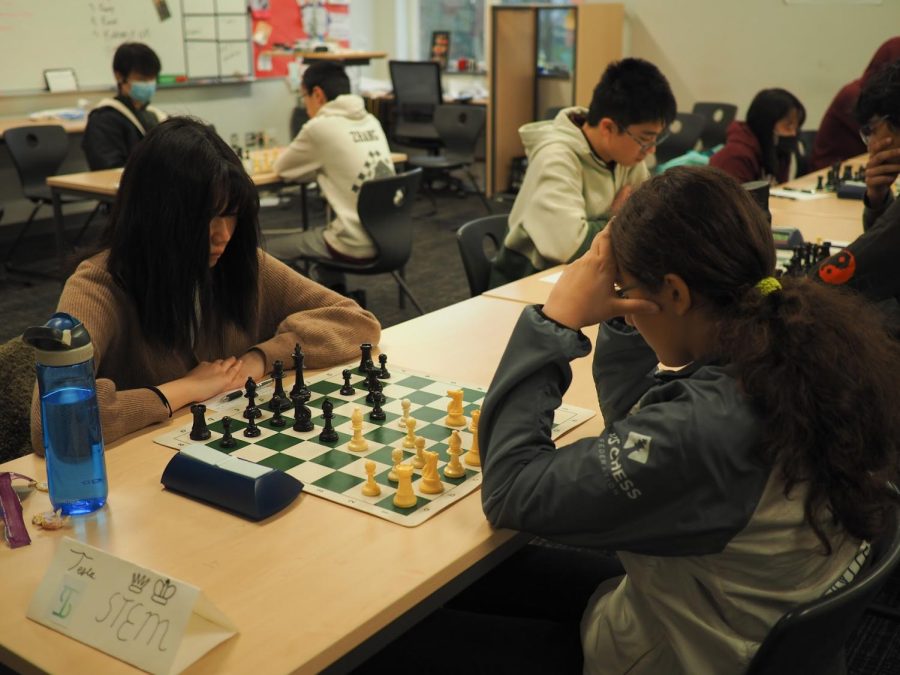What is Chess Without its Queens?
You can hear a pin drop in the halls of Stanwood High School as soon as the first match begins. Every room is filled with rows upon rows of focused players, brows furrowed, deliberating to the ominous ticking of Fischer clocks. But against the pensive backdrop, a discomforting realization quickly strikes: out of roughly 230 players, there are at most 15 girls.
The gender disparity in competitive chess is staggering, especially for a sport that hardly involves players’ genders. From what I heard at the tournament, the disparity was even more prominent in events leading up to the state championship. Stephanie, from Tesla STEM High School, said that she and her sister were the only female players competing in the KingCo league’s preliminary round — an occurrence she’s grown used to throughout a childhood of playing chess.
Stephanie, a Pan-American Youth Chess Festival bronze medalist with an upbeat attitude and a laser-focused playing style, is certainly no stranger to gender inequalities in chess. “We don’t have too many girls who play chess locally,” she told me. She adds that though there are certainly tournaments in the region targeted towards female players, not many show up. Stephanie suggested that the existing lack of girls in chess disheartens potential players, perpetuating the gender disparity. “That huge gender gap makes some people feel like they can’t be good at chess if they’re a girl,” she explained, clarifying that the belief is “under no circumstances true.”
Lakeside’s very own Anjali W. ’25, the world’s youngest International Chess federation certified chess coach, expressed a similar sentiment, describing the issue as a “culmination of years’ worth of culture.” She recalls winning against a boy who had initially underestimated her; rather than conceding that he had been wrong, he exclaimed, “I can’t believe I just lost to a girl!”
That’s certainly not to say that all hope is lost, though. Both Stephanie and Anjali expressed hope for the future of women in chess, citing tournaments made specifically for girls as promising steps towards community-building and female empowerment in the scene. For the both of them, chess has served as an invaluable opportunity to meet other girls and forge lasting friendships, a phenomenon that they hope will increase as more and more girls are introduced to the sport. As Stephanie put it: “Once you get girls into the game, they’re unstoppable.”
Since COVID, Amber has branched into a journalism as a passion, with inflammatory articles like replacing the Quad with a parking lot to "eliminate the...

